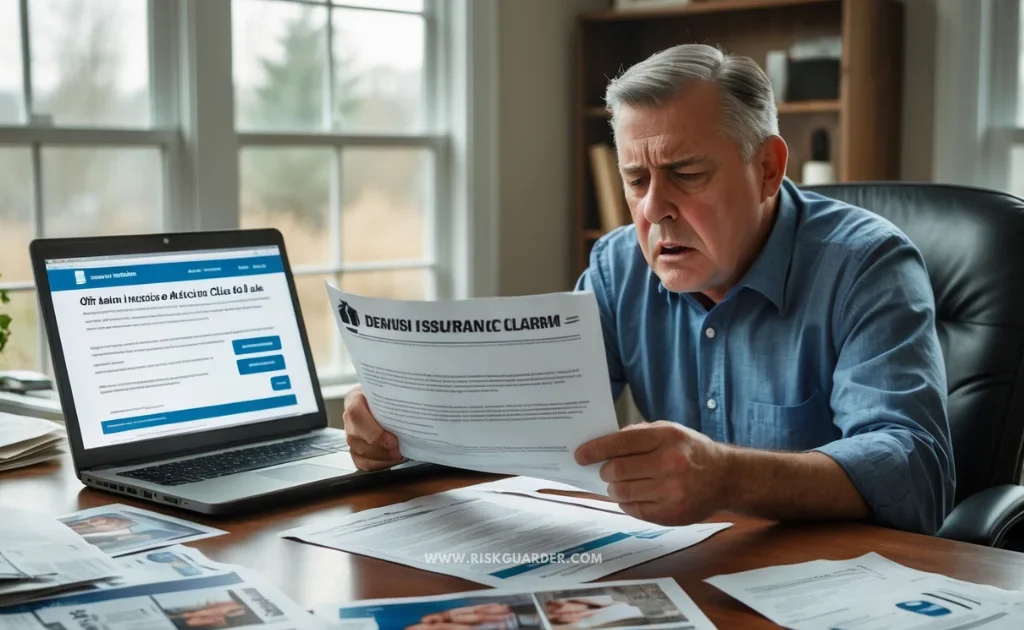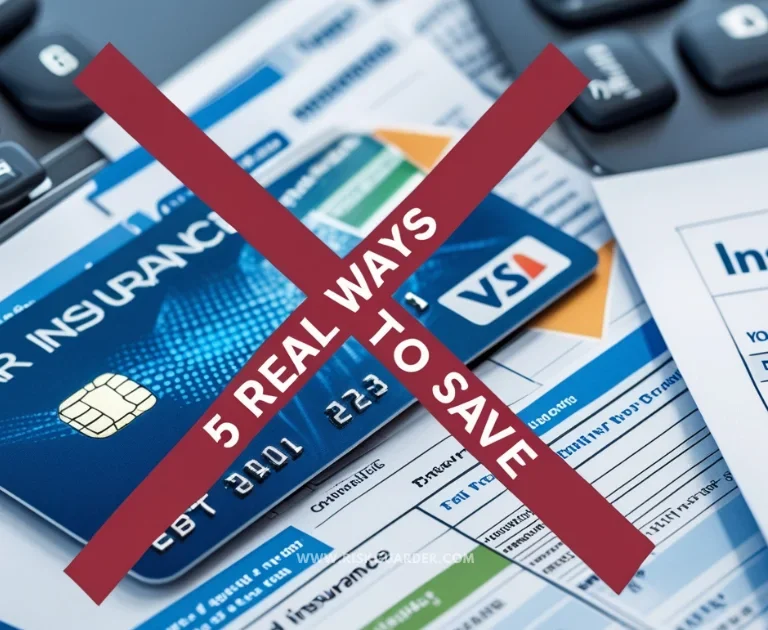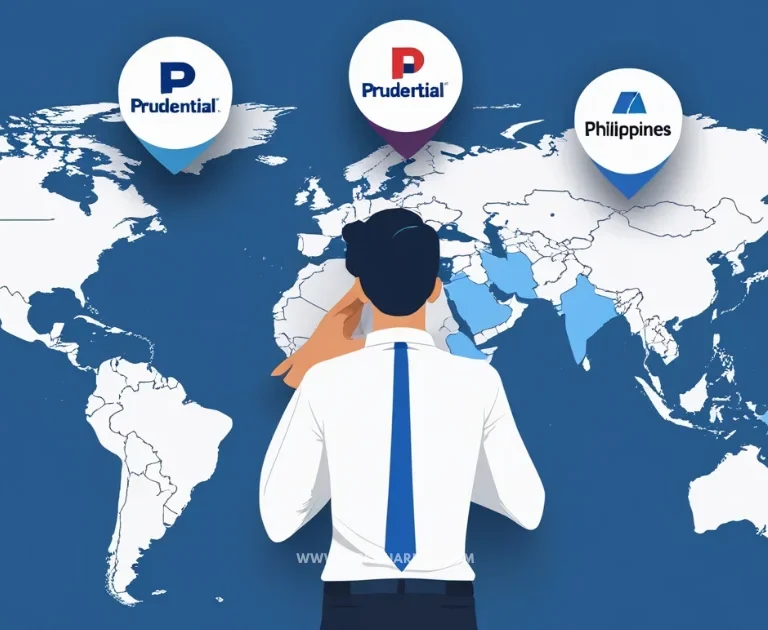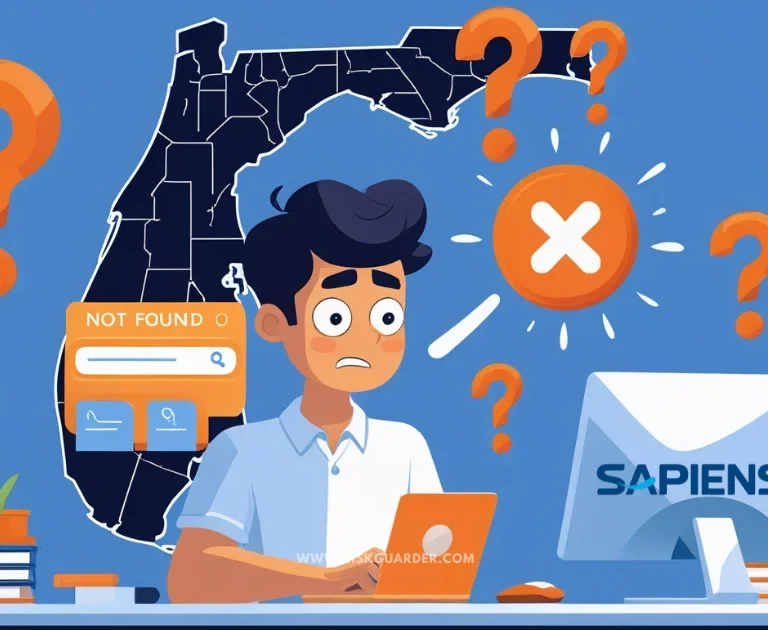Okay, so here’s the thing. If you’ve ever googled “auto insurance legal advice,” you’ve probably ended up super confused. Some articles are talking about this cheap add-on that costs like twenty quid a year, while others are going on about hiring expensive lawyers who take a chunk of your settlement. And you’re sitting there thinking, “Wait, are these even about the same thing?”
Plot twist: they’re not. At all.
Here’s what’s happening. In the UK and Canada, “legal advice” for car insurance usually means buying something called Motor Legal Protection before anything bad happens. It’s basically insurance for getting a lawyer. In the US? Totally different story. Americans don’t really buy this stuff beforehand. Instead, they hire a personal injury lawyer after they’ve already been in an accident or gotten into a fight with their insurance company.
Wild, right? Same search term, completely different meanings depending on which side of the Atlantic you’re on. This guide’s gonna clear up the confusion and get you the info you actually need. And yeah, Our analysis is based on the official RiskGuarder Review Methodology, which emphasizes data-driven research, consumer advocacy, and unbiased analysis of insurance products and services.
The Critical Disambiguation: Which System Applies to You?
Before diving deeper, you need to identify which framework applies to your situation:
In the UK & Canada: “Auto insurance legal advice” typically means Motor Legal Protection, a product you purchase as an add-on to your existing car insurance policy before any incident occurs. This coverage pays for legal costs if you need to pursue uninsured losses, personal injury claims, or other specified legal disputes following an accident.
In the United States: “Auto insurance legal advice” usually means hiring a personal injury lawyer after an accident has occurred, either to sue an at-fault driver for damages beyond what insurance covers, or to challenge your own insurance company if they deny your claim or act in bad faith.
Your Next Step: Identify your geographic location and read the relevant section below. If you’re a UK or Canadian driver researching whether to add Motor Legal Protection to your policy, proceed to Path A. If you’re a US driver who has been in an accident or is facing a dispute with your insurer, skip to Path B.
Table of Contents
Path A: The “Product” Model – Motor Legal Protection Explained (UK & Canada)

Motor Legal Protection represents a fundamentally different approach to legal assistance in auto insurance matters. Rather than waiting until a problem arises and then seeking legal representation, UK and Canadian drivers can purchase this coverage proactively as part of their insurance package. Understanding what this product covers, what it costs, and whether it provides value requires examining how it functions within the broader insurance ecosystem of these regions.
Defining Motor Legal Protection
Motor Legal Protection is an optional extra you can tack onto your car insurance. Most of the big names offer it – Aviva, Admiral, Direct Line, Intact Insurance, you name it. And here’s the kicker: it’s stupid cheap. We’re talking £20-£40 a year in the UK, or about $30-$60 Canadian. That’s less than what you spend on coffee in a week, but it can cover legal costs up to £100,000 or more.
Here’s why it exists: your regular car insurance covers you if you cause an accident and someone sues you. That’s great and all. But what if you need to sue someone else? What if you need to get your money back from the person who hit you? Your regular insurance doesn’t pay for that lawyer. That’s where MLP comes in.
What Motor Legal Protection Actually Covers
Glad you asked. Here’s the breakdown:
✅ Getting Your Deductible Back: This is the big one, and honestly, it’s probably why most people use this coverage. Let’s say someone rear-ends you at a stoplight. Even though it’s totally their fault, you still have to pay your deductible (or “excess” if you’re British) to get your car fixed. That could be £500 or more just… gone. Plus maybe you had to rent a car, or you missed work, or whatever. MLP covers the cost of hiring a lawyer to chase down the other driver and get all that money back. According to sites like Compare the market, this benefit alone makes the whole thing worth it.
✅ Personal Injury Claims: If you’re injured in an accident caused by another driver, you may be entitled to compensation for pain, suffering, and ongoing medical expenses beyond what standard insurance covers. Motor Legal Protection pays for the solicitor’s fees to pursue this personal injury claim against the at-fault party. In the UK, these claims can be substantial, and legal representation is often essential to securing fair compensation.
✅ Motor Contract Disputes: Many MLP policies extend beyond accident-related matters to cover legal disputes arising from buying or selling a vehicle, or disputes with garages over repair work. If you purchase a car with undisclosed defects or a repair shop performs substandard work, your Motor Legal Protection can cover the legal costs of resolving these disputes.
✅ Defending Traffic Charges: Some policies even cover legal defense if you get charged with a driving offense (though usually not the really serious stuff like drunk driving or dangerous driving).
❌ Defense When You’re At Fault: This is a critical exclusion to understand. If you cause an accident and are sued by the other party, your standard liability coverage handles this situation, including providing legal defense. Motor Legal Protection does not duplicate this coverage because it’s unnecessary. The MLP is specifically designed for situations where you need to pursue others, not defend yourself.
❌ Pre-Existing Disputes: Like most insurance products, Motor Legal Protection doesn’t cover legal matters that existed before you purchased the coverage. You cannot buy MLP after an accident occurs and then use it to cover that specific incident.
Consumer protection organizations in both the UK and Canada, including Which? and the Financial Consumer Agency of Canada, generally view Motor Legal Protection favorably when purchased from reputable insurers. The key is understanding that the coverage is most valuable for drivers who want peace of mind knowing they can pursue legitimate claims without worrying about legal costs, which can easily reach thousands of pounds or dollars even for straightforward cases.
The Financial Value Proposition
From a pure financial analysis perspective, Motor Legal Protection represents an asymmetric risk-reward proposition. The annual premium of £20-£40 is modest compared to the potential legal costs it covers. A solicitor’s hourly rate in the UK typically ranges from £150-£300, meaning even a relatively simple uninsured loss recovery case could cost £1,000-£2,000 in legal fees. A personal injury claim involving medical evidence and negotiations could easily exceed £5,000 in legal costs.
However, the value calculation isn’t purely mathematical. According to data from the Association of British Insurers, many drivers never make a claim on their Motor Legal Protection during the entire time they hold the policy. The product functions similarly to other insurance coverages: you’re paying a small, certain cost to protect against a larger, uncertain expense. The question each driver must answer is whether the peace of mind and financial protection justify the annual premium.
For drivers with comprehensive insurance policies, good driving records, and vehicles with higher values, Motor Legal Protection often represents excellent value. These drivers have more to lose in an uninsured loss scenario and are more likely to pursue claims vigorously. For drivers with minimal coverage, older vehicles, or those who would be unlikely to pursue legal action even if costs were covered, the value proposition is weaker.
The Verdict on Motor Legal Protection
Based on our analysis of policy terms, consumer outcomes, and cost-benefit calculations, Motor Legal Protection represents a low-cost, high-value add-on for most UK and Canadian drivers. The coverage fills genuine gaps in standard auto insurance policies, particularly around uninsured loss recovery, which is both common and financially significant. The modest annual premium makes it accessible to nearly all drivers, and the potential benefit far exceeds the cost in scenarios where the coverage is needed.
For most UK and Canadian drivers, Motor Legal Protection is a pretty solid deal. It’s cheap, it covers real gaps in your regular insurance, and it could save you a ton of money if you ever need it. Just make sure you read the fine print and know what you’re buying. Companies like Aviva and Admiral are pretty transparent about their coverage, which is good.
Path B: The “Service” Model – Hiring a Lawyer Explained (US)
The American approach to auto insurance legal advice operates on fundamentally different principles than the UK and Canadian systems. In the United States, drivers typically don’t purchase legal expense coverage as a proactive add-on. Instead, they engage legal services reactively, after an accident or dispute has already occurred. Understanding when you need a lawyer, what they can help with, and how they’re compensated is essential for American drivers navigating the complex intersection of insurance claims and legal rights.
The Two Scenarios for Legal Representation in US Auto Insurance
There are basically two situations where lawyers come into play:
Situation One: Someone’s Suing You. If you cause an accident and the other person sues you, guess what? Your insurance company’s got your back. It’s called the “duty to defend,” and it’s built right into your liability coverage. Your insurer will hire a lawyer, pay all the legal bills, and handle everything. You don’t need to do anything except cooperate. This is actually one of the best parts of having car insurance, even though nobody thinks about it until they need it.
Situation Two: You Need to Sue Someone. This is where things get interesting. Maybe you got hurt in an accident and the other driver’s insurance isn’t offering you enough money. Maybe your own insurance company is being shady and denying your claim for no good reason. In these cases, you need to hire your own lawyer to fight for you.
And this is where the whole American system is different from the UK/Canada thing. You don’t have coverage that pays for this lawyer. You have to go out and hire one yourself.
What the Heck Is “Bad Faith” Anyway?
Here’s something a lot of people get wrong. You can’t just sue your insurance company because you don’t like their decision or you think they’re being cheap. That’s not how it works. Insurance companies are allowed to evaluate claims and make decisions, even if you disagree with them.
BUT – and this is a big but – they have to play fair. If they cross the line into what’s called “bad faith,” then you can absolutely sue them. And these lawsuits can be huge.
Understanding Insurance Bad Faith: When You Can Sue Your Own Insurer

Dragging Their Feet: If your insurance company takes forever to investigate your claim, or keeps “losing” your paperwork, or just generally stalls for no good reason, that’s bad faith. Some delay is normal, especially for complicated claims. But deliberate stalling to pressure you into giving up? That’s not okay.
Denying Without Investigating: Insurance companies have to actually look into your claim before they deny it. If they just say “nope, not covered” without checking out the evidence, talking to witnesses, or getting the facts, that’s bad faith.
Misrepresenting Policy Terms: If your insurer tells you that your policy doesn’t cover something when it actually does, or misrepresents the terms of your coverage to avoid paying a claim, this deceptive practice constitutes bad faith.
Lowball Offers: They don’t have to offer you the maximum possible amount on every claim, but they do have to be reasonable. If they’re offering you way less than your claim is obviously worth, that could be bad faith.
Refusing to Defend You: If your insurer refuses to provide legal defense when you’re sued for an accident covered by your policy, this breach of the duty to defend constitutes bad faith.
Big law firms like Morgan & Morgan (forthepeople.com) handle thousands of these cases every year. And here’s the thing – if you win a bad faith case, you can get way more than your original claim. We’re talking the full value of your claim, plus damages for all the stress and problems they caused you, plus sometimes punitive damages to punish the company. That’s why insurance companies take these accusations seriously.
The Contingency Fee Model: “No Win, No Fee”
Here’s how most car accident lawyers in the US work: they don’t charge you by the hour. Instead, they take a cut of whatever money you win. It’s called a contingency fee, and it’s usually somewhere between 30-40% of your settlement.
So let’s say you get a $100,000 settlement and your lawyer’s fee is 33%. The lawyer gets $33,000, and you get the rest (minus any case expenses, which we’ll get to in a sec).
Now, I know what you’re thinking – “Wait, they’re taking a third of my money?!” Yeah, it sounds like a lot. But here’s the thing: studies show that people with lawyers end up with way more money overall, even after paying the lawyer. Like, three to four times more. Because lawyers know how to negotiate, they know the law, they know what your case is actually worth, and insurance companies take them seriously.
Plus, if you don’t win, you don’t pay. The lawyer takes all the risk. They invest their time, they pay for experts and investigations and court fees, and if you lose, they get nothing. That’s why they’re picky about which cases they take – they only want cases they think they can win.
When You Actually Need a Lawyer in the US System
Not every situation needs a lawyer. Here’s a quick guide:
You Likely Need a Lawyer If:
- You got seriously hurt and your medical bills are over $10,000-$15,000
- The other driver doesn’t have enough insurance to cover your damages
- Your insurance company denied your claim or made a ridiculous lowball offer
- Multiple cars were involved and it’s not clear who’s at fault
- Someone’s suing you for more than your insurance covers
You Probably Don’t Need a Lawyer If:
- It was just a fender bender with no injuries
- Fault is super clear and the insurance company is handling it fine
- You only had minor injuries and you’re already better
- The insurance offer seems fair and covers your actual costs
- The potential payout is so small that lawyer fees would eat up most of it
The key difference here is that you’re making this decision after something’s already happened, based on your specific situation. You’re not buying coverage ahead of time like in the UK/Canada system.
The Side-by-Side Comparison: A Summary of the Two Systems

To crystallize the fundamental differences between how auto insurance legal advice works in different regions, the following comparison table highlights the key distinctions:
| Feature | UK/Canada Model (“Product”) | US Model (“Service”) |
|---|---|---|
| Primary Concept | Motor Legal Protection / Legal Expense Insurance | Personal Injury Lawyer / Bad Faith Insurance Attorney |
| When You Obtain It | Proactive: Purchase as an add-on before any accident occurs | Reactive: Seek legal representation after an accident or dispute arises |
| Typical Cost | Fixed annual premium of £20-£40 (UK) or CAD $30-$60 (Canada) | Contingency fee of 30-40% of settlement or judgment amount |
| Payment Structure | Paid annually regardless of whether you make a claim | Only paid if you win your case and receive compensation |
| Primary Purpose | Covers legal costs for pursuing uninsured losses, personal injury claims, and motor-related disputes | Recover damages from at-fault parties or challenge bad faith insurance practices |
| Coverage Scope | Defined set of covered legal matters with specified limits (typically £100,000+) | No predetermined limit; attorney pursues maximum possible recovery |
| Provider | Your auto insurance company offers it as a policy add-on | Independent law firms specializing in personal injury or insurance disputes |
| Claim Process | File a claim with your insurer who then authorizes legal representation | Directly hire an attorney who handles all aspects of your case |
| Defense Coverage | Not needed; standard liability policy includes duty to defend | Standard liability policy includes duty to defend; MLP equivalent doesn’t exist |
| Market Penetration | Approximately 40-50% of UK drivers purchase MLP; lower in Canada | Nearly all personal injury cases use contingency arrangements |
| Regulatory Framework | Regulated by Financial Conduct Authority (UK) or provincial regulators (Canada) | Regulated by state bar associations and consumer protection laws |
This comparison reveals that despite using similar terminology, the systems are fundamentally different in philosophy, structure, and consumer experience. The UK and Canadian approach emphasizes proactive protection through insurance products, while the American system relies on reactive legal services with risk-sharing through contingency fees.
Frequently Asked Questions
Is Motor Legal Protection Available in the United States?
Motor Legal Protection as it exists in the UK and Canada is not available in the United States. The American insurance and legal systems have evolved differently, with no widespread market for pre-purchased legal expense coverage for auto insurance matters. Several factors explain this absence. First, the American legal system’s contingency fee structure already provides access to legal representation without upfront costs, reducing demand for insurance coverage of legal expenses. Second, the American insurance market is highly fragmented across fifty state regulatory systems, making it difficult to develop standardized legal expense products. Third, cultural and legal differences, including the American propensity for litigation and the different role of insurance companies in the claims process, have shaped a system where reactive legal services rather than proactive insurance products dominate.
Some American insurers have experimented with legal expense coverage for various matters, but these products have never gained significant market traction in the auto insurance space. American drivers who want protection against legal costs should focus on maintaining adequate liability coverage limits and understanding their policy’s duty to defend provisions rather than seeking a Motor Legal Protection equivalent.
If I’m Sued in the US, Will My Car Insurance Provide a Lawyer?
Yes! 100%. This is actually one of the most important parts of your car insurance, and a lot of people don’t even know about it. It’s called the “duty to defend,” and it’s automatic. If someone sues you because of a covered accident, your insurance company has to provide a lawyer for free. They pay for everything – the lawyer’s fees, court costs, all of it.
And here’s the cool part – they have to defend you even if the lawsuit is bogus. As long as it potentially falls under your coverage, they’re on the hook for your defense. They hire the lawyer, they pay the bills, they handle the whole thing.
But there’s a catch. This only works up to your policy limits. If someone’s suing you for a million bucks and you only have $100,000 in coverage, you could be personally on the hook for the rest. That’s why everyone says to get way more than the state minimum coverage. Also, if you did something intentionally or something specifically excluded from your policy, they might not have to defend you.
Is Legal Expenses Cover Worth It for UK and Canadian Drivers?
Honestly? Yeah, probably. For most people, it’s a pretty good deal. You’re paying like thirty quid a year for something that could save you thousands. The coverage fills real gaps in your regular insurance, especially for getting your deductible back, which is super common.
It makes the most sense if you’ve got a newer car, good insurance coverage, and you’re the type of person who would actually pursue a claim if you got screwed over. If you’re driving a 20-year-old rust bucket with minimal insurance and you wouldn’t bother suing anyone anyway, then maybe skip it.
Also, check if you already have some legal coverage through other stuff, like your home insurance or credit card. There might be some overlap, though usually not much for car-specific issues.
Consumer groups like Which? generally say it’s a smart add-on for most drivers. Just read the policy, understand what it covers, and make sure you’re buying from a company that’s not gonna be a pain when you actually need to use it.
How Much Does a Car Accident Lawyer Cost in the United States?
So here’s the thing – most car accident lawyers don’t charge by the hour. They work on contingency, which means they take a percentage of whatever you win. Usually it’s 30-40%, with some lawyers charging less if the case settles quickly and more if it goes to trial.
You might also have to pay for case expenses – stuff like court filing fees, getting medical records, hiring expert witnesses, that kind of thing. Some lawyers pay for this upfront and take it out of your settlement later. Others want you to pay as you go. Make sure you understand this before you sign anything.
Here’s an example: Say you get a $100,000 settlement and your lawyer’s fee is 33%. They get $33,000. If there were $5,000 in expenses, you’d end up with $62,000 (assuming the expenses come out after the lawyer’s cut, which is usually how it works).
Yeah, giving up a third of your money sounds like a lot. But remember – people with lawyers typically get way bigger settlements than people without lawyers, even after paying the fees. You’re way better off with 60-70% of a big settlement than 100% of a tiny one (or nothing at all because you didn’t know how to fight for it).
What Does Motor Legal Protection Cover That Regular Insurance Doesn’t?
Great question. Your regular car insurance covers a bunch of stuff – it pays if you damage someone else’s car, it pays to fix your car, it defends you if you get sued. But it doesn’t cover the cost of you hiring a lawyer to go after someone else.
Like, if someone hits you and it’s totally their fault, you still have to pay your deductible to get your car fixed. Getting that deductible back means taking legal action against the other driver, and your regular insurance doesn’t pay for that. Same thing if you get injured – pursuing a personal injury claim against the at-fault driver requires a lawyer, and that’s not covered by your standard policy.
Motor Legal Protection fills exactly these gaps. It’s designed to work alongside your regular coverage for situations where you need legal help to recover money or damages that your regular insurance doesn’t handle.
Plus, it often covers non-accident stuff too, like disputes over buying or selling a car, fights with repair shops, and even defending against certain traffic tickets. It’s pretty comprehensive.
Conclusion: The Right Advice for Where You Drive
The fundamental lesson of this comprehensive analysis is that “auto insurance legal advice” is not a universal concept but rather a geographically specific term that reflects different insurance systems, legal frameworks, and consumer protection approaches. Understanding which system applies to your situation is the essential first step in making informed decisions about legal protection related to your vehicle.
For UK and Canadian drivers, auto insurance legal advice primarily means Motor Legal Protection, a proactive insurance product that you purchase as an add-on to your standard policy. This coverage provides peace of mind and financial protection by covering legal costs for pursuing uninsured losses, personal injury claims, and other motor-related disputes. With annual premiums typically ranging from £20-£60, MLP represents an affordable way to ensure you can pursue legitimate claims without worrying about legal costs. Our analysis suggests that for most drivers in these regions, particularly those with comprehensive coverage and newer vehicles, Motor Legal Protection offers genuine value and should be seriously considered when purchasing or renewing auto insurance.
For American drivers, auto insurance legal advice means understanding when and how to engage legal representation after an accident or dispute occurs. The US system relies on reactive legal services rather than proactive insurance products, with the contingency fee model providing access to representation without upfront costs. American drivers need to understand their existing protections, particularly the duty to defend included in liability coverage, and recognize when hiring their own attorney becomes necessary, such as when pursuing damages beyond insurance coverage or challenging bad faith insurance practices.
The comparison between these systems reveals different philosophical approaches to consumer protection and legal access. The UK and Canadian model emphasizes predictable, affordable protection through insurance products, while the American model relies on market-driven legal services with risk-sharing through contingency fees. Neither system is inherently superior; each has evolved to suit the legal, cultural, and economic context of its region.
As you make decisions about legal protection related to your auto insurance, the key is understanding exactly what protection you already have through your standard policy, identifying the gaps that exist in your specific situation, and choosing the most appropriate and cost-effective way to address those gaps. Whether that means purchasing Motor Legal Protection in the UK or Canada, or understanding when to seek legal representation in the United States, informed decision-making requires clarity about your geographic context and the specific protections available to you.
At RiskGuarder, our mission is to provide the unbiased, data-driven analysis you need to navigate these complex insurance and legal decisions with confidence. By understanding the fundamental differences in how auto insurance legal advice works across different regions, you can make choices that protect your financial interests and ensure you have access to the legal help you need when accidents or disputes occur.






